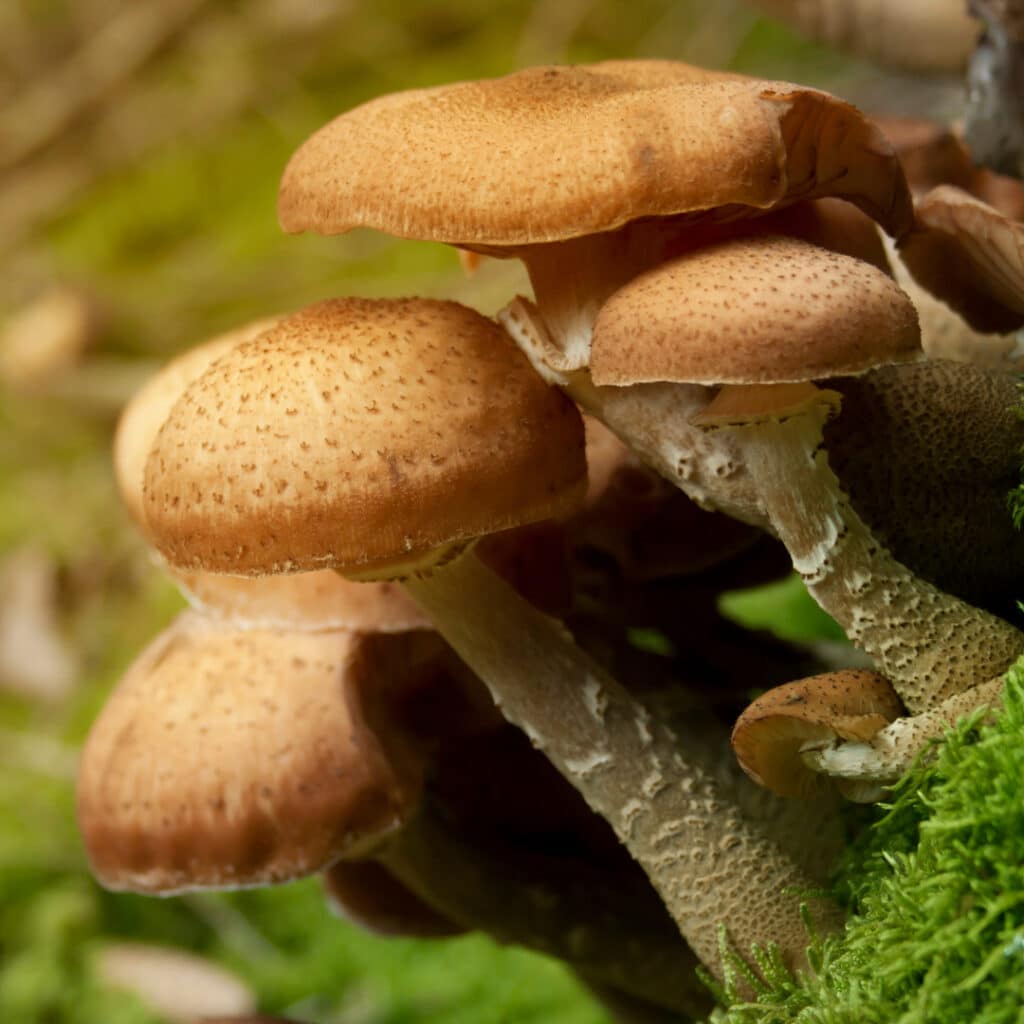
Have you ever wondered what is the world’s largest organism? When thinking of the largest organism on earth, you tend to think of massive blue whales or giant redwood trees. Although those are both great guesses, they are in fact not the largest organism. In fact, they are not even close. Surprisingly, this title is held by a fungus known as Armillaria solidipes (Honey fungus). Scientists find a network of this fungus in the pacific northwest which spans 5.5 kilometres across. This is equal to roughly 2,384 acres, and they estimate it to be over 2000 years old.
This fungus consists of visible above ground mushrooms and a large underground network of mycelia. The fungus gets so large through genetic clones joining together and creating this extensive mass.
Are all fungi good?
Some fungi can have symbiotic relationships with trees, but some including the honey fungus are destructive. The honey fungus and its network are known to infect live trees, which can lead to their death. It has been seen on several occasions where swaths of trees in the forest die off for seemingly no reason. This happens because the fungus wraps its rhizomorphs around the roots of the tree and emits digestive enzymes. The fungus also creeps up underneath the bark of the tree. This process is not instant, though. Depending on the scale of the fungal infection, the tree may still survive for 50 years.
There are some worthy contenders for the world’s largest organism, with the Aspen Tree coming in a close second. An Aspen Tree colony known as Pando in Utah stretches 8 km in length. It also is heavier in total mass when compared to the Honey Fungus. However, the Honey fungus covers a larger area overall, giving it the title of the world’s largest organism.





